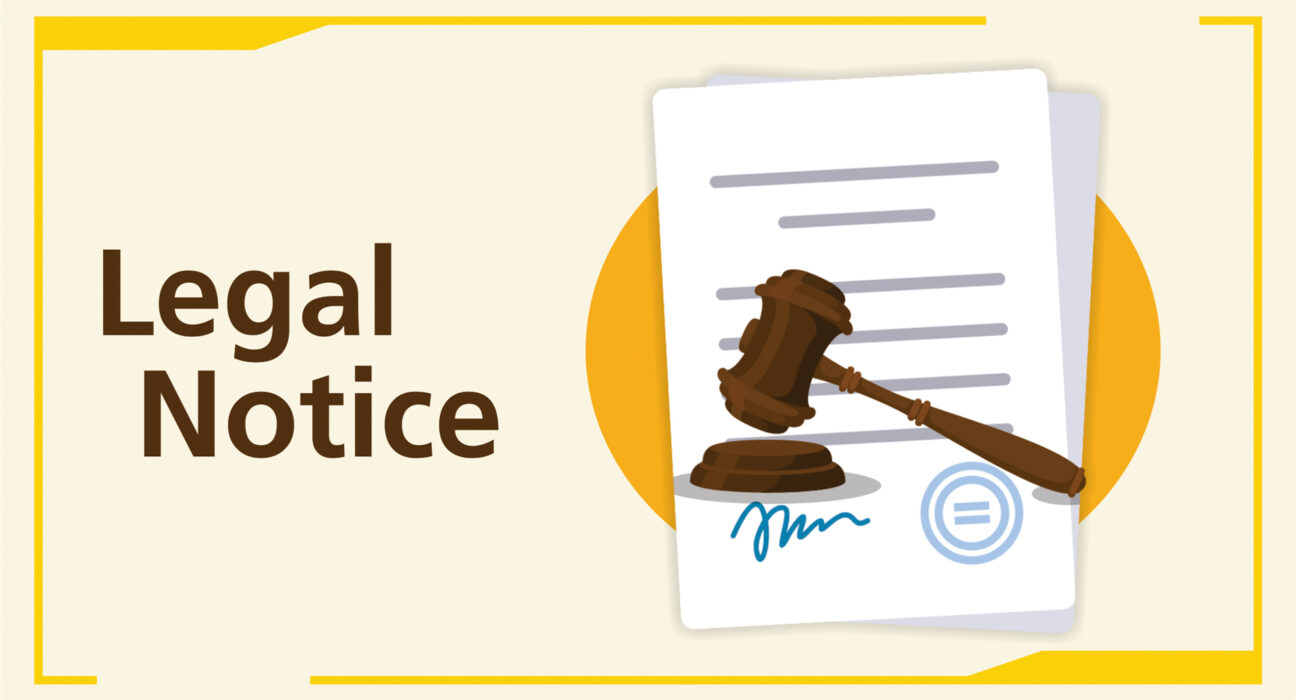This article, “The Important to Responding to Legal Notices for Loans Defaults” is written by Urvashi Lanjhewar a 4th year Law student at Sage University, Indore
Introduction
In today’s complex financial landscape, loans have become an integral part of our lives. Whether it’s a home loan, a car loan, or a personal loan, many individuals rely on borrowing from banks and financial institutions to fulfil their various needs. However, with the borrowing comes the responsibility of timely repayment. Failure to repay loans can lead to legal consequences, including receiving legal notices from banks regarding loan defaults. In this article, we will explore the importance of responding to these legal notices for loan defaults as they are key to safeguarding one’s financial interests and reputation.
Understanding Legal Notices on Loan Defaults
Before delving into the significance of responding to legal notices, it’s crucial to understand what these notices entail. When a borrower fails to make timely payments on a loan, the lender, typically a bank or financial institution, may issue a legal notice informing the borrower of the default. These notices serve as formal communication regarding the breach of the loan agreement and the potential consequences if the default is not rectified.
Legal notices related to loan defaults typically include:
Statement of default: The notice will clearly state that the borrower is in default regarding the loan agreement. It may outline the specific payment(s) that were missed or not made by the agreed-upon terms.
Demand for payment: The notice will usually demand immediate payment of the outstanding amount, including any accrued interest or penalties. It may provide a deadline by which the payment must be made to avoid further action.
Legal implications: The notice will inform the borrower about the legal consequences of continued default, which may include legal proceedings, repossession of collateral (if applicable), and damage to credit score and financial reputation.
Importance of Responding to Legal Notices
Now, let’s discuss why borrowers must respond promptly and appropriately to legal notices sent by banks regarding loan defaults:
Understanding the Situation
The first and foremost reason to respond to a legal notice is to understand the gravity of the situation. Ignoring a legal notice can lead to increased financial liabilities, legal actions, and further damage to one’s creditworthiness. By responding, borrowers can gain clarity on the outstanding amount, any additional charges or penalties, and the options available to resolve the default.
Communication and Negotiation
Responding to a legal notice opens the lines of communication between the borrower and the lender. It provides an opportunity to negotiate repayment terms, request a restructuring of the loan, or explore alternative solutions to settle the debt. Banks and financial institutions are often willing to work with borrowers who demonstrate a genuine intent to repay but are facing temporary financial difficulties.
Legal Protection
By responding to a legal notice, borrowers protect their legal rights and interests. Ignoring a notice may result in the lender taking swift legal action, which could lead to asset seizure, wage garnishment, or even bankruptcy proceedings. Responding promptly shows a willingness to cooperate and resolve the issue through legal means if necessary.
Preserving Credit Score
One of the most significant impacts of loan defaults is the negative effect on one’s credit score. A defaulted loan can remain on a borrower’s credit report for years, making it challenging to obtain future loans or credit cards on favourable terms. Responding to a legal notice and resolving the default can mitigate the damage to one’s credit history and demonstrate responsible financial behaviour to creditors.
Avoiding Further Penalties
Legal notices often include deadlines for payment or response. Failing to respond within the specified timeframe can lead to additional penalties, increased interest rates, and escalated legal actions. By responding promptly, borrowers can avoid these consequences and work towards a resolution that is manageable for both parties involved.
Steps to Responding to Legal Notices
When receiving a legal notice from a bank regarding a loan default, borrowers should take the following steps:
- Review the Notice Carefully: Read the notice thoroughly to understand the details of the default, the amount owed, and the actions required to rectify the situation.
- Seek Legal Advice if Needed: If the notice is complex or if the borrower is unsure about their rights and options, consulting with a legal advisor specializing in financial matters can be beneficial.
- Contact the Lender: Reach out to the bank or financial institution promptly to acknowledge receipt of the notice and initiate discussions on resolving the default. Be prepared to provide any relevant documentation or information requested by the lender.
- Propose a Repayment Plan: If feasible, propose a realistic repayment plan that takes into account your financial capabilities. Lenders may be more willing to negotiate if they see a sincere effort to repay the debt.
- Document Everything: Keep a record of all communication with the lender, including emails, letters, and phone calls. This documentation can serve as evidence of your cooperation and efforts to resolve the default.
- Follow Through on Agreements: If an agreement is reached with the lender, ensure that you adhere to the terms and make payments as agreed upon. Fulfilling your obligations demonstrates reliability and may prevent further legal actions.
Conclusion
In conclusion, responding to legal notices sent by banks regarding loan defaults is not only important but also necessary for safeguarding one’s financial interests and reputation. By understanding the implications of loan defaults, communicating effectively with lenders, and exploring viable solutions, borrowers can mitigate the consequences of default and work towards resolving the debt in a structured manner. Ignoring legal notices can lead to exacerbated financial troubles, legal complications, and long-term damage to creditworthiness. Therefore, borrowers should approach legal notices with diligence, seek appropriate guidance if needed, and take proactive steps to address the underlying issues causing the default.
Reference
https://www.investopedia.com/terms/n/notice-of-default.asp
https://legal251.com/resources/understanding-the-importance-of-proper-legal-notice-preparation/




Leave feedback about this